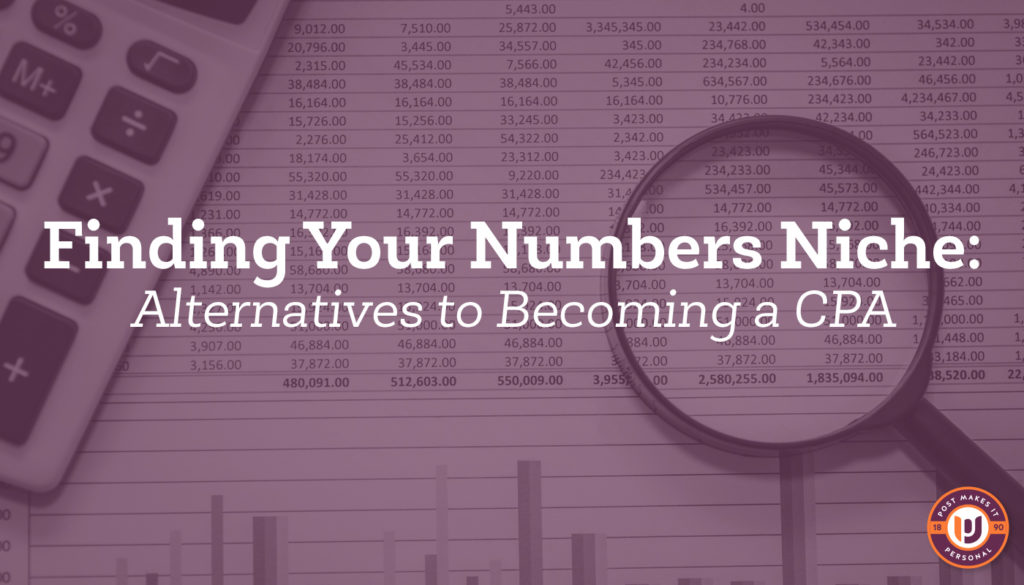 If you love numbers, financial statements and taxes, you’ll probably be happy in accounting. You might go into business for yourself serving clients, work for a firm, operate in a consulting role or even become an auditor. A Master of Science in Accounting online may be what you need to get started in any of these positions, meaning you don’t have to take the traditional route of becoming a Certified Public Accountant (CPA). First, we will address the main duties of a CPA and why you may not find the role appealing, then discuss a few of the top alternatives to consider before making your final decision about a career path.
If you love numbers, financial statements and taxes, you’ll probably be happy in accounting. You might go into business for yourself serving clients, work for a firm, operate in a consulting role or even become an auditor. A Master of Science in Accounting online may be what you need to get started in any of these positions, meaning you don’t have to take the traditional route of becoming a Certified Public Accountant (CPA). First, we will address the main duties of a CPA and why you may not find the role appealing, then discuss a few of the top alternatives to consider before making your final decision about a career path.
Certified Public Accountant
The main duties of a Certified Public Accountant include financial audit services, ensuring compliance and keeping businesses in good standing with the Internal Revenue Service (IRS) and other regulatory bodies. This means CPAs ascertain that financial statements are correct, help prepare books and payroll, represent companies and corporations to the IRS, provide internal auditing services, and work in finance or operations positions. Because a CPA mainly focuses on compliance, reporting, taxes and auditing, you may not find the role very appealing if your real interest is purely finance, auditing or taxes. In that case, the following certified positions are likelier to grab and hold your interest for life.
Certified Management Accountant
A Certified Management Accountant (CMA) is most similar to a CPA. However, while CPAs deal more in minutiae, helping ensure businesses don’t unintentionally make financial or tax missteps, a CMA focuses more on broad financial or business decision-making. They also help to analyze budgets, books and data, and prepare forecasts, to ensure businesses can make the best decisions in future.
Certified Professional Controller
While a Certified Professional Controller (CFC) is involved in a largely accounting role, their job description is broadened to include all financial operations of a business: billing, accounts payable and receivable, budgeting, and more. CFCs have deep knowledge of the operational and finance sides of a business, understand risk management and transaction processing, and help determine which duties can safely be outsourced.
Chartered Financial Analyst
Those who wish to play a role in asset management, investment and security would do well to consider a role as a Chartered Financial Analyst (CFA). While accounting principles certainly underlie this role, it is much more financial in scope.
Certified Internal Auditor
If you are interested in helping businesses remain in compliance with federal, state and local regulations, a Certified Internal Auditor (CIA) role may be for you. In this position, you perform audits without penalty to help simulate what it would be like to be externally audited, when the stakes are much higher. This means your organization can correct missteps before they become a serious issue.
Enrolled Agent
Enrolled Agents (EAs) are certified to represent businesses and individuals before the IRS. As such, they have considerable knowledge of tax and accounting laws, and can help make the best case for entities that aren’t in good standing with the IRS, with the end goal of removing penalties, making payment plans and settling on offers in compromise – plans to pay the IRS back for less than the original amount.
It All Begins with Proper Training
No matter which of the above career paths you choose, a Master of Science in Accounting can help you get your start. While many of the above positions can technically be fulfilled by those with a bachelor’s degree in accounting or finance, you won’t have nearly the opportunities as you would with a master’s degree. Some organizations may not even hire you, and you won’t be well prepared to go into business for yourself, if that’s your goal. Lastly, you will not be able to get any of the above jobs if you don’t have a related bachelor’s degree. Instead, consider getting a master’s degree to avoid the necessity of going back to school later in your career and prepare yourself for lifelong success.